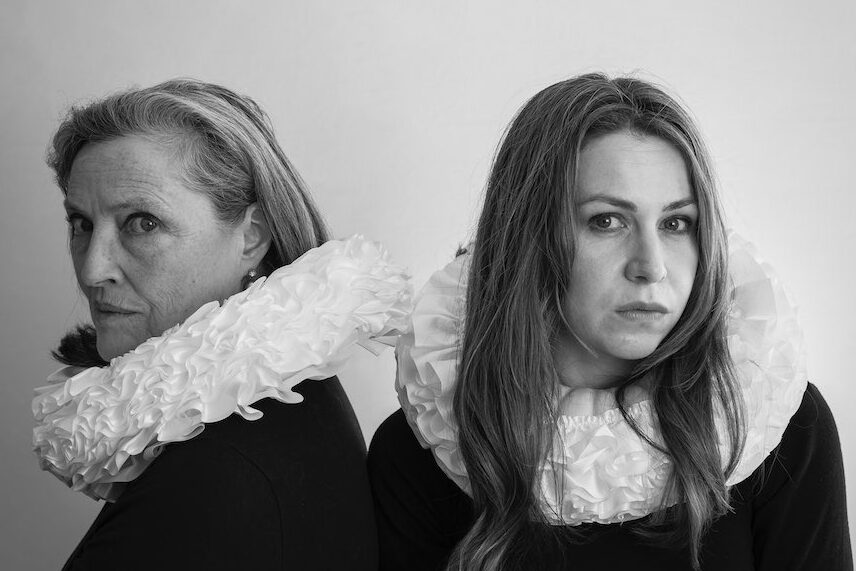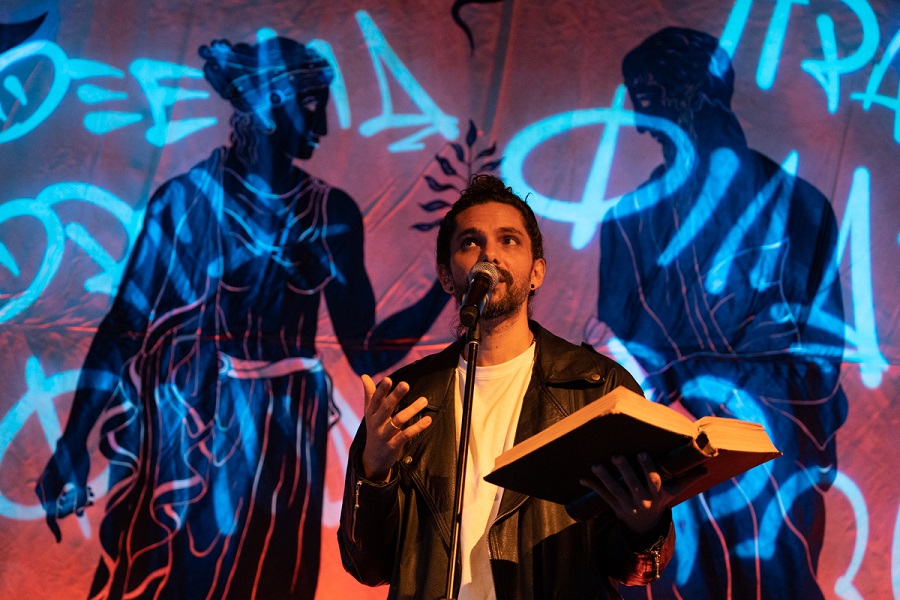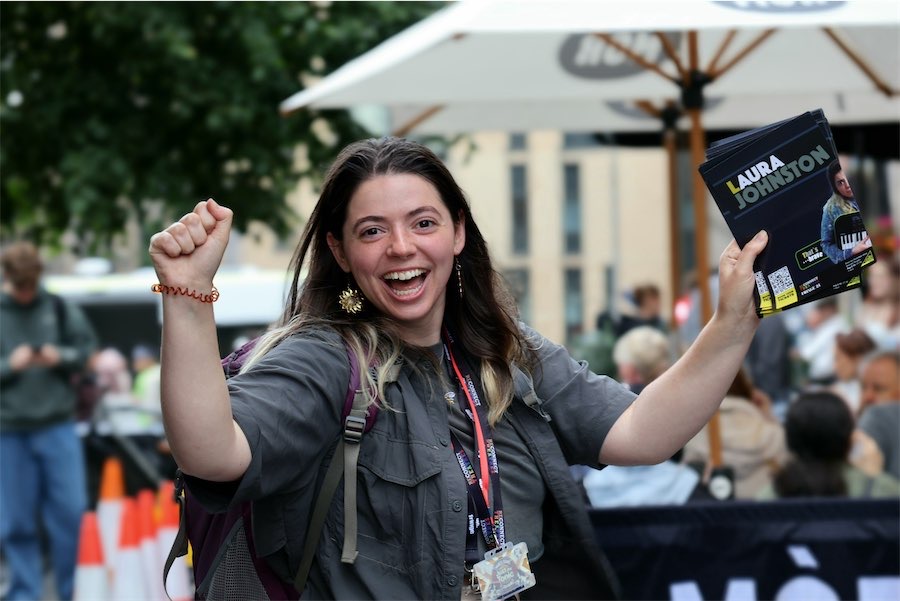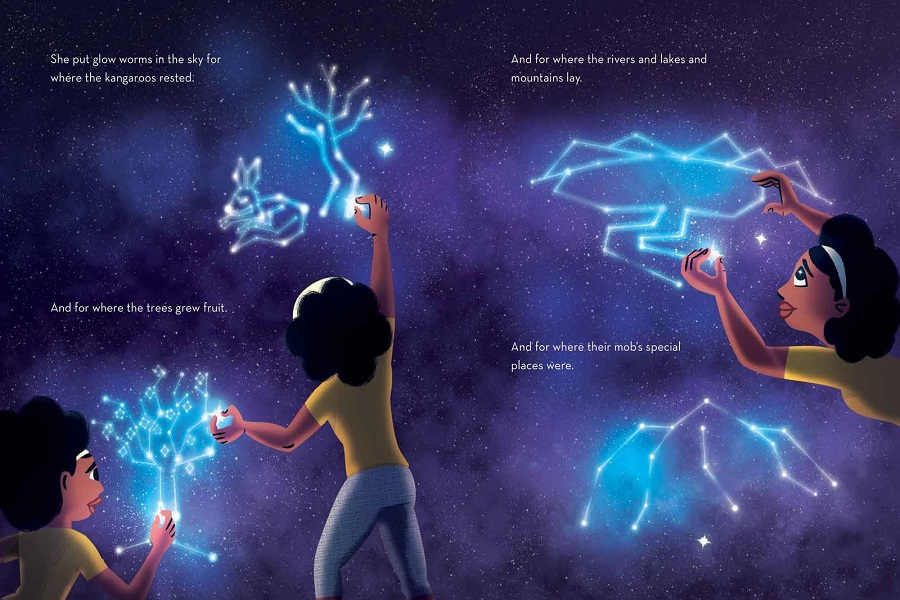Chaika Theatre has taken another leap into the classics this year, but it’s one you’ve probably never heard of.
Friedrich Schiller (1759-1805), a contemporary of Goethe, was idolised in his time and is regarded by many as Germany’s premier classical playwright.
But unless you’re an opera fan – Schiller plays have been adapted many times for the operatic stage – you’re unlikely to have seen any of them.
Now Chaika is taking on Schiller’s play Mary Stuart in which two mighty opposites – Queen Elizabeth I and her cousin, Mary, Queen of Scots – take the stage together.
Actually, they never met in real life, but why let the facts get in the way of one of the great what-if scenarios?
Why it has languished for so long in the English-speaking world is a mystery. It’s full of modern-sounding realpolitik, but its style, a mixture of prose and verse, has presented obstacles.
Not so in opera where that doesn’t matter. Donizetti’s Maria Stuarda, Rossini’s William Tell, Tchaikovsky’s Maid of Orleans and four Verdi operas are all based on Schiller plays.
Enter leading Australian theatre identity Kate Mulvaney, who has used the basic structure and the characters from the Schiller play, spiced it up with some dry Australian wit and interpolated direct quotations, from the two queens themselves.
Steph Roberts plays the doomed Scottish Queen and Karen Vickery, who is also the director of Chaika, plays Queen Elizabeth.
Vickery says: “I’ve always been fascinated by the collision of these two extraordinary, powerful women, each fighting for survival in a hostile climate.”
They’re joined by a very strong cast of Canberra actors, not least James McMahon in the fictional role of Mortimer, Schiller’s stand-in for several historical characters associated with the Babington Plot to assassinate Queen Elizabeth.
Luke Rogers, who staged Collected Stories for Chaika in 2022, is director.
Mulvaney, as Rogers is quick to point out, is not the first person who’s had a go at adapting Schiller and she is on the record saying that since most others were by white European men, she wanted to give the women more agency and not have them used as chess pieces of the male court.
Her two queens do all the controlling.
Mulvaney has adopted quite colloquial, everyday language and since the conversations are behind closed doors, we get a chance to see them as real people.
“It’s fascinating to think of the fact that on a small island there were two queens at the same time,” Rogers says.
“In the patriarchal world having one woman in power would have been something, but having two was just too much.
“We find it so strange that they never met, but the play asks how they got to such a point and why Elizabeth views Mary as such a threat to her crown.”
By today’s standards the executions seem horrific, Rogers says. We use expressions about politicians being stabbed in the back, but for Elizabeth and Mary that was a real prospect, yet both stayed incredibly strong.
The play asks what it means to have power and what it means for Elizabeth to find herself responsible for condemning another queen to what happened to her own mother, Anne Boleyn, who was beheaded.
There is real history in the story, seen in the Earl of Leicester’s relentless courting of the queens, but Rogers says the important thing is their relationship rather than something the men set up.
“We’ve been playing around with their meeting,” he says. “It becomes this moment of magical realism in the play as we ask, how much is feasible? They had such an intimate relationship and so much in common.”
One thing that you won’t be seeing is exploitation of any sexual aspects of the story – the focus is not on the male gaze, but on the two queens themselves and it is led by them.
“It’s not a documentary,” Rogers says, “and it won’t look anything like Shakespeare in Love.”
Mary Stuart, ACT Hub, 14 Spinifex Street, Kingston, July 25-August 3.
Who can be trusted?
In a world of spin and confusion, there’s never been a more important time to support independent journalism in Canberra.
If you trust our work online and want to enforce the power of independent voices, I invite you to make a small contribution.
Every dollar of support is invested back into our journalism to help keep citynews.com.au strong and free.
Thank you,
Ian Meikle, editor





